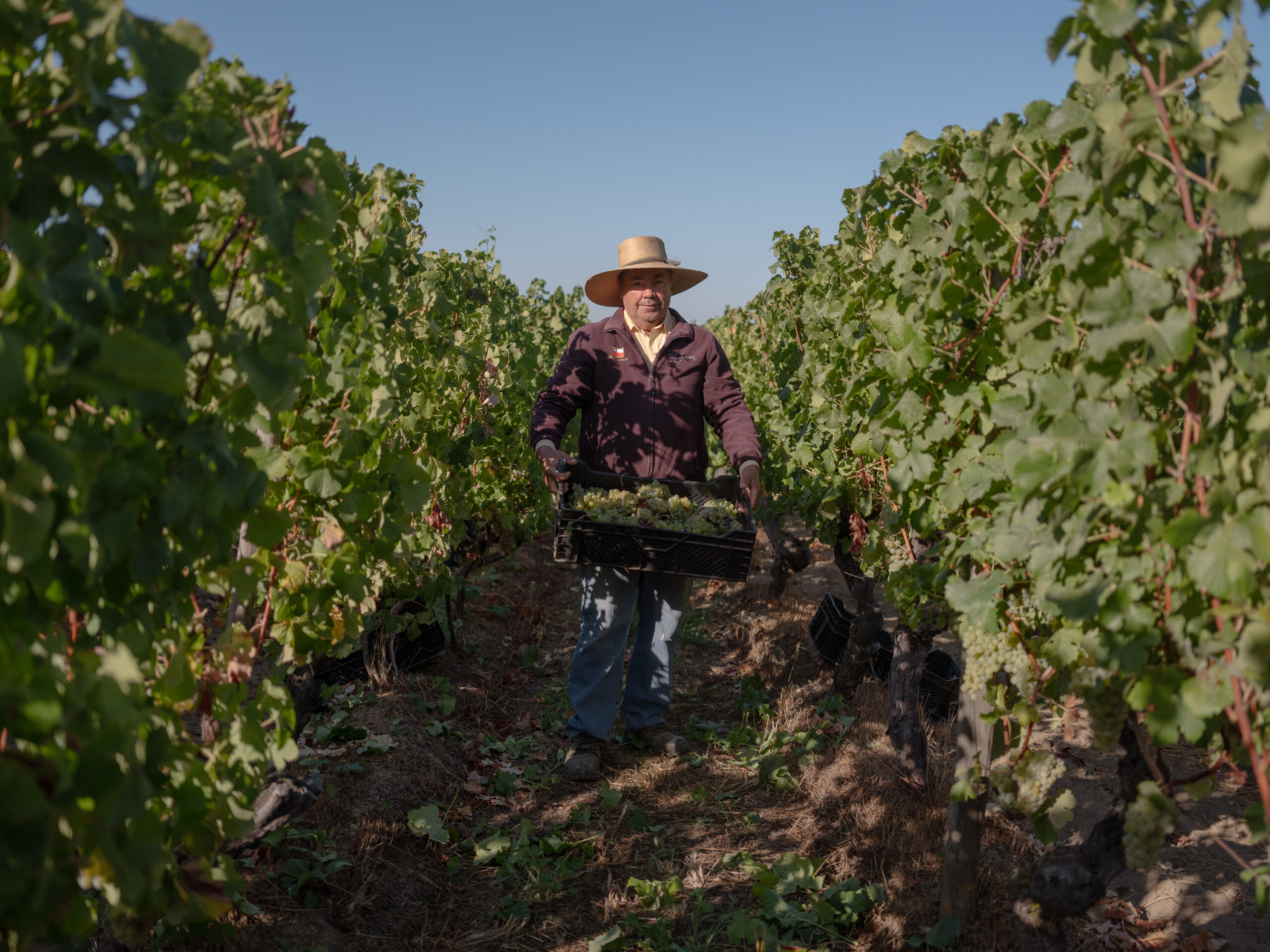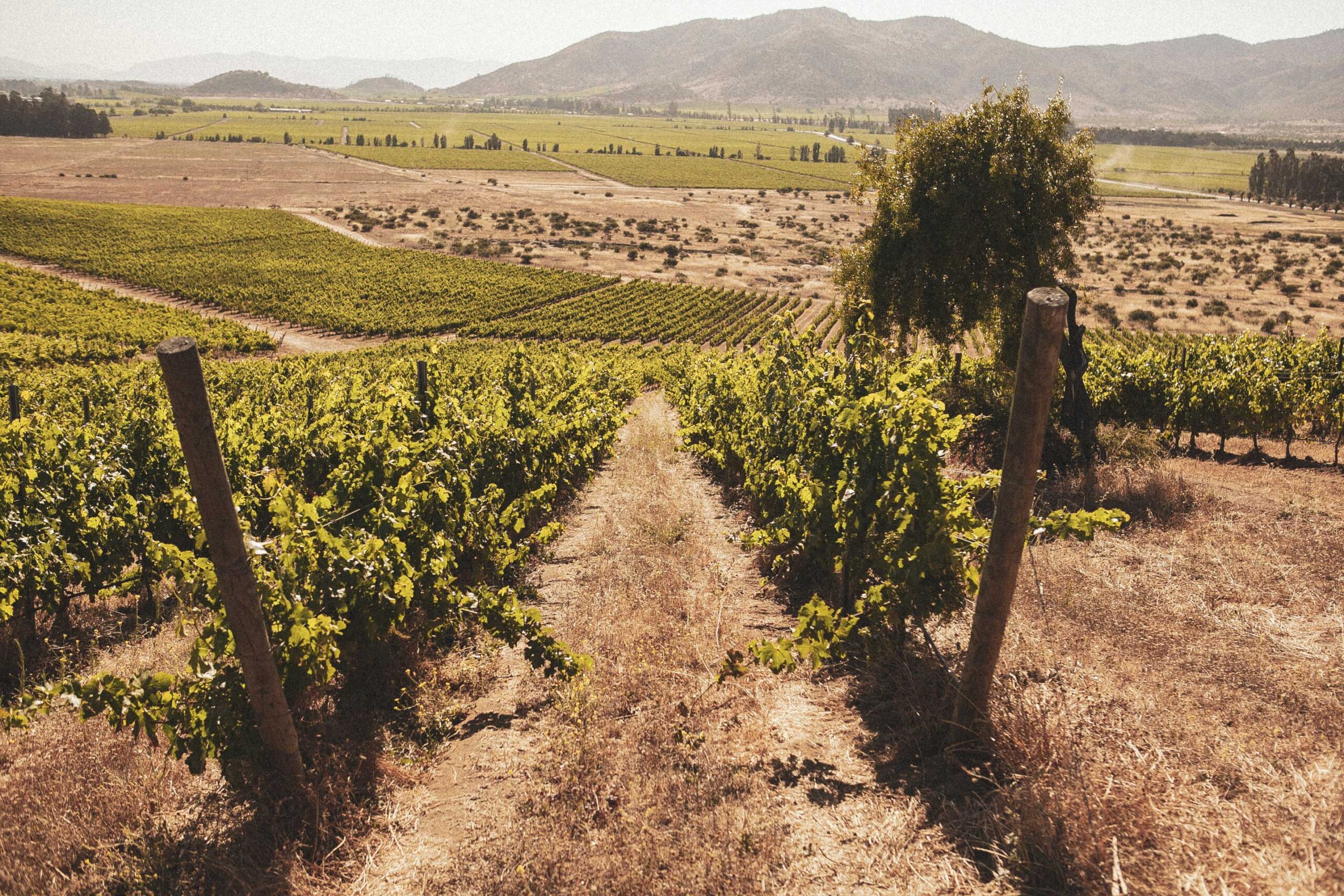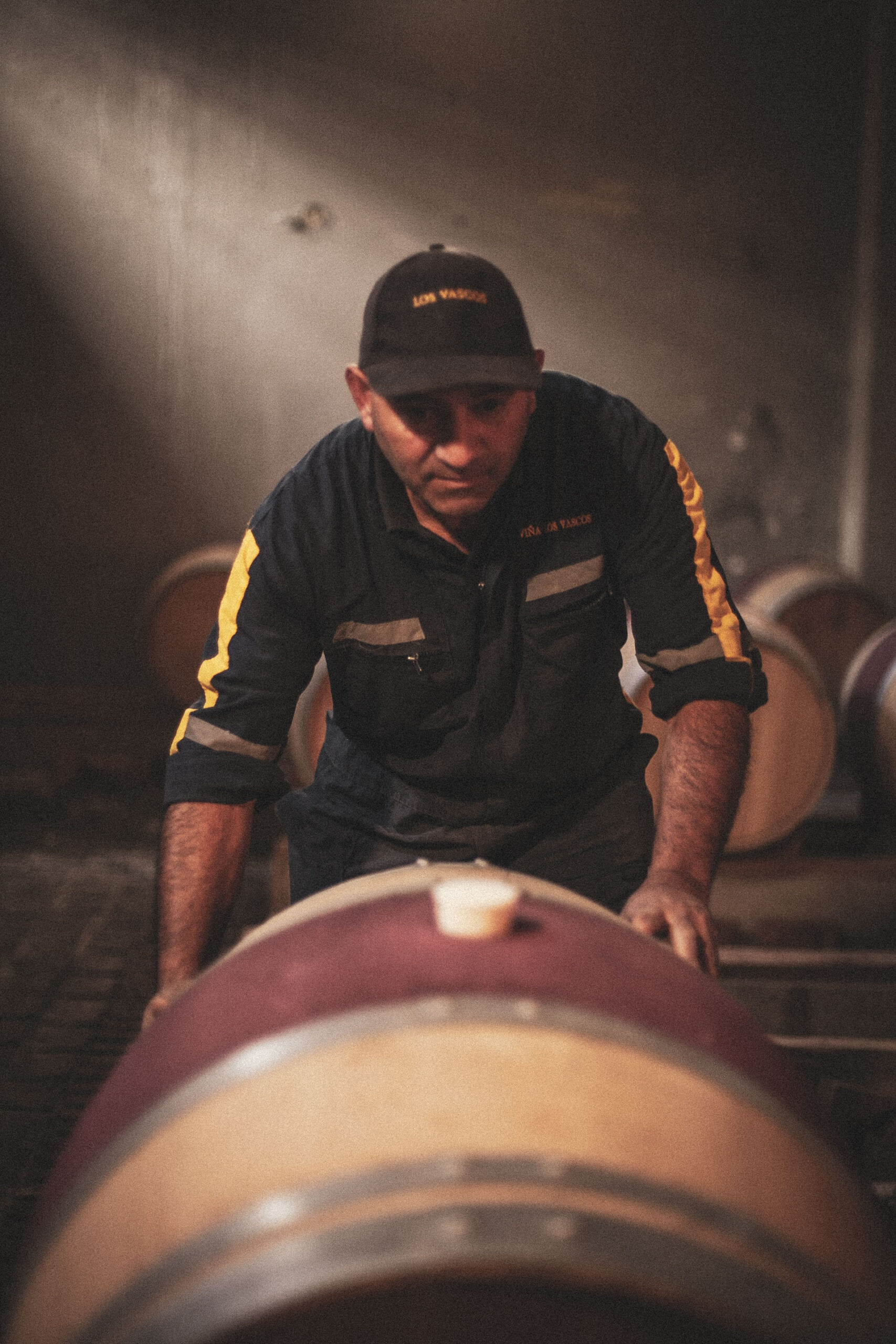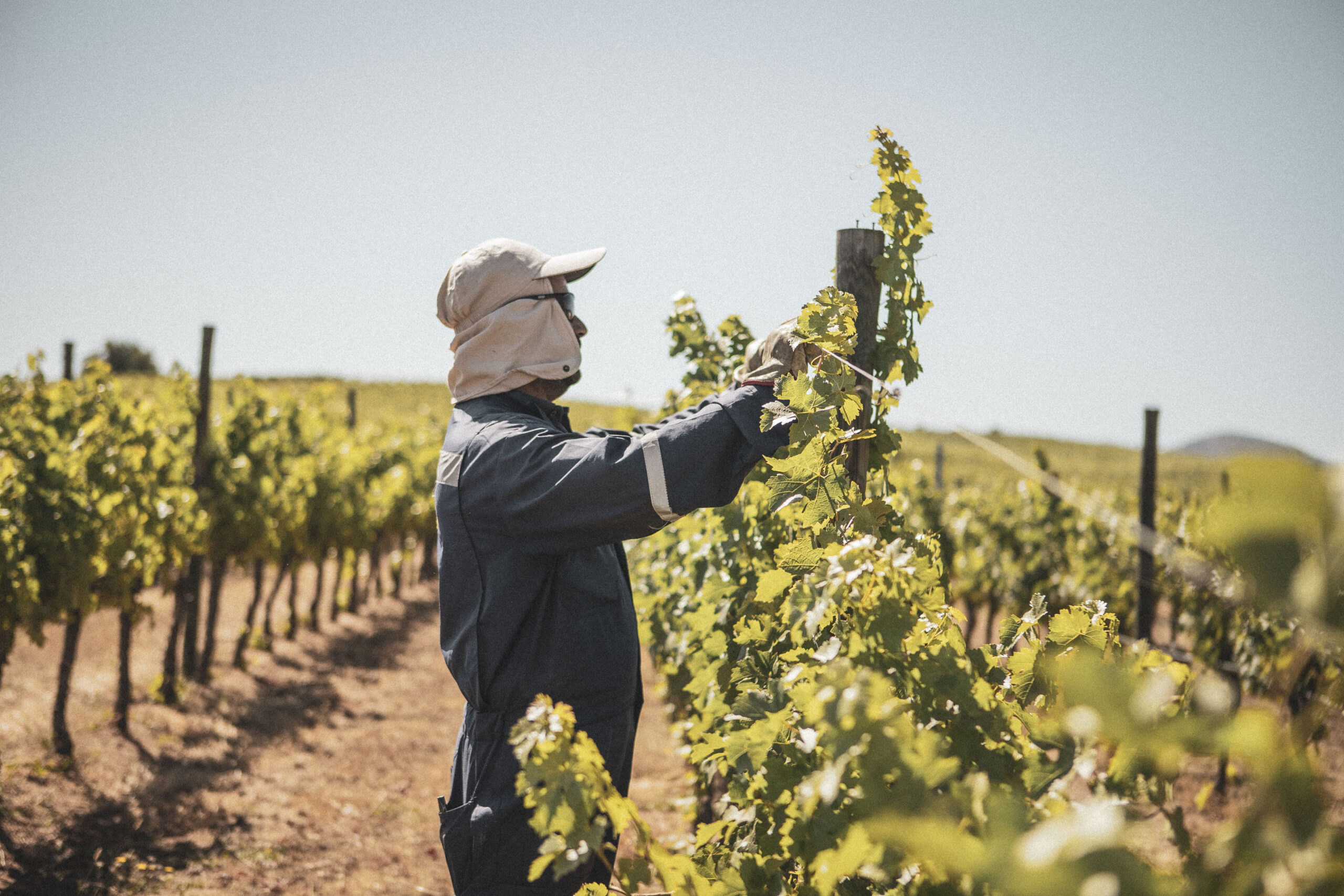
07 jul Philippe Rolet on Los Vascos: Bridging Bordeaux Tradition and Chilean Terroir
With roots in the Jura region of France and more than three decades of experience in South America, Philippe Rolet brings a rare combination of heritage, vision, and on-the-ground expertise to his role as Managing Director at Los Vascos. Part of the prestigious DBR Lafite family of estates, Los Vascos is not only one of Chile’s most respected wineries—it’s also a proving ground for blending Bordeaux finesse with New World dynamism. We spoke with Mr. Rolet about his path to Chile, the philosophy that guides Los Vascos, and how sustainability is shaping its future.
Words by Albert van Beeck Calkoen
Image credits: Los Vascos
A Winemaker Shaped by Two Hemispheres
“I was born and raised in a family of wine producers in Jura,” Rolet recalls. “It appeared obvious that my career would be a journey across the wine world.” That journey, guided early on by the legendary William Fèvre of Chablis, eventually brought him to Chile—a country he has worked in, alongside Argentina, for over thirty years.
Rolet now oversees both Los Vascos in Colchagua and Bodegas CARO in Mendoza, a joint venture between the Catena and Rothschild families. His role is emblematic of DBR Lafite’s unique approach: one that values regional identity, while nurturing a shared ethos across continents.
One Philosophy, Many Soils
From Bordeaux to Corbières, and from China to Chile, each DBR Lafite estate carries its own distinct terroir and personality. Yet as Rolet points out, there is an underlying thread that binds them all together: “If we had to sum up the spirit of DBR Lafite in two words, we would say finesse and balance.”
Los Vascos, acquired in the late 1980s, fits neatly into this vision. The estate was born from a pioneering decision by Baron Eric de Rothschild to explore Chile’s potential for fine wine. “He was impacted by the favourable climate and the potential of its red wines,” Rolet explains. Technical director Gilbert Rokvam—guided by a search for maritime influence and climatic transition zones—settled on Colchagua, where Cabernet thrived on the foothills of the coastal range.
Interpreting Colchagua Through a Bordeaux Lens
What distinguishes Los Vascos from its Chilean peers is the deliberate, bicultural approach to winemaking. “The technical team has always benefited from the experience and external vision of a DBR technical director,” says Rolet. Today, that role is filled by Olivier Tregoat, whose steady presence ensures that the estate remains in conversation with Lafite’s heritage while interpreting Chilean terroir with authenticity.
“In Bordeaux, our style is timeless, outside of fashion trends,” Rolet notes. “We apply the same philosophy here.” Gentle extraction, early blending, and the use of barrels from DBR’s own cooperage in Pauillac are just some of the winemaking tools borrowed from the Old World. But this precision is paired with freedom. “Our team enjoys a good amount of liberty to let the terroir speak.”
A Different Voice in the Chilean Chorus
In a region often associated with bold, fruit-driven wines, Los Vascos strikes a more restrained, elegant tone. “We’ve been producing here since 1988—more than thirty vintages,” Rolet reflects. “Our understanding of the patchwork of plots has grown intimately.” The result is a house style defined by elegance and consistency, with subtle evolutions under Tregoat’s management—less oak, more freshness, greater tension.
One iconic vineyard encapsulates this identity: El Fraile, or “The Monk.” First identified by Rokvam as one of the estate’s finest plots, it continues to impress the team with its natural balance.

Cabernet Sauvignon grapes ripening on the vine at Los Vascos estate.
Farming for the Next Generation
As with all DBR Lafite estates, sustainability is not an afterthought—it’s part of the core operating philosophy. “Our policy focuses on integrating productive activities within a sustainable ecosystem,” Rolet explains. This means everything from protecting biodiversity to ensuring efficient resource use and fostering strong community relationships.
Faced with the growing challenge of water scarcity, Los Vascos has invested heavily in precision irrigation: an efficient drip system, real-time weather data, and soil moisture sensors are all part of the toolkit. But perhaps more impressive is the estate’s commitment to biodiversity. Half of its 3,600 hectares are dedicated to native forests and ecological reserves.
A native flora rescue program includes assisted pollination, seed collection, and replanting efforts, supported by a dedicated nursery. “We’ve documented 185 endemic plant species, many with high ecological value,” says Rolet. These efforts are not only ecological but educational—Los Vascos hosts events to raise awareness of local flora and promote its protection.
And the work is certified. The estate proudly holds both the Wines of Chile Sustainability Code and B Corporation status. “These standards are present on the back labels of all our wines. Transparency is essential.”
Innovation, Tradition—and the Room Between
Rolet is quick to point out that sustainability and tradition are not at odds. “Practices applied by former generations of viticulturists were based on observation—and were generally sustainable.” It’s this blend of wisdom and curiosity that defines Los Vascos. The estate’s innovative “Primo” project explored new varietals and techniques across Chile, many of which have since been folded into daily practice.
As for blending, Rolet sees no fixed rules: “Chile is very diverse. Distance from the ocean and the Andes is just as important as latitude.” Carmenère—once a Bordeaux variety, now a Chilean flagship—adds depth and typicity, while Cabernet Sauvignon continues to anchor the Bordeaux-style structure.
Culture, Community and Continuity
For Rolet, the story of Los Vascos is ultimately a story of people and place. “Approximately 90% of our workforce comes from nearby villages,” he says. “Our Community Committee coordinates initiatives that promote local well-being and environmental responsibility.”
Wines like Le Dix, with more than 20 vintages behind it, speak to the estate’s track record in the premium segment. The recent launch of the Primo range and the upcoming Cañeten—from a unique mesoclimate—signal that Los Vascos still has much to say.
“Our purpose is clear,” Rolet concludes. “We cultivate to sow the future.” That future, at Los Vascos, is rooted in sustainability, shaped by heritage, and open to the promise of terroir still waiting to be discovered.
This article was created in partnership with De Monnik Dranken, importer for Los Vascos wines in The Netherlands.

French oak barrels aging wine in the Los Vascos cellar, reflecting Bordeaux techniques.




Geen reactie's